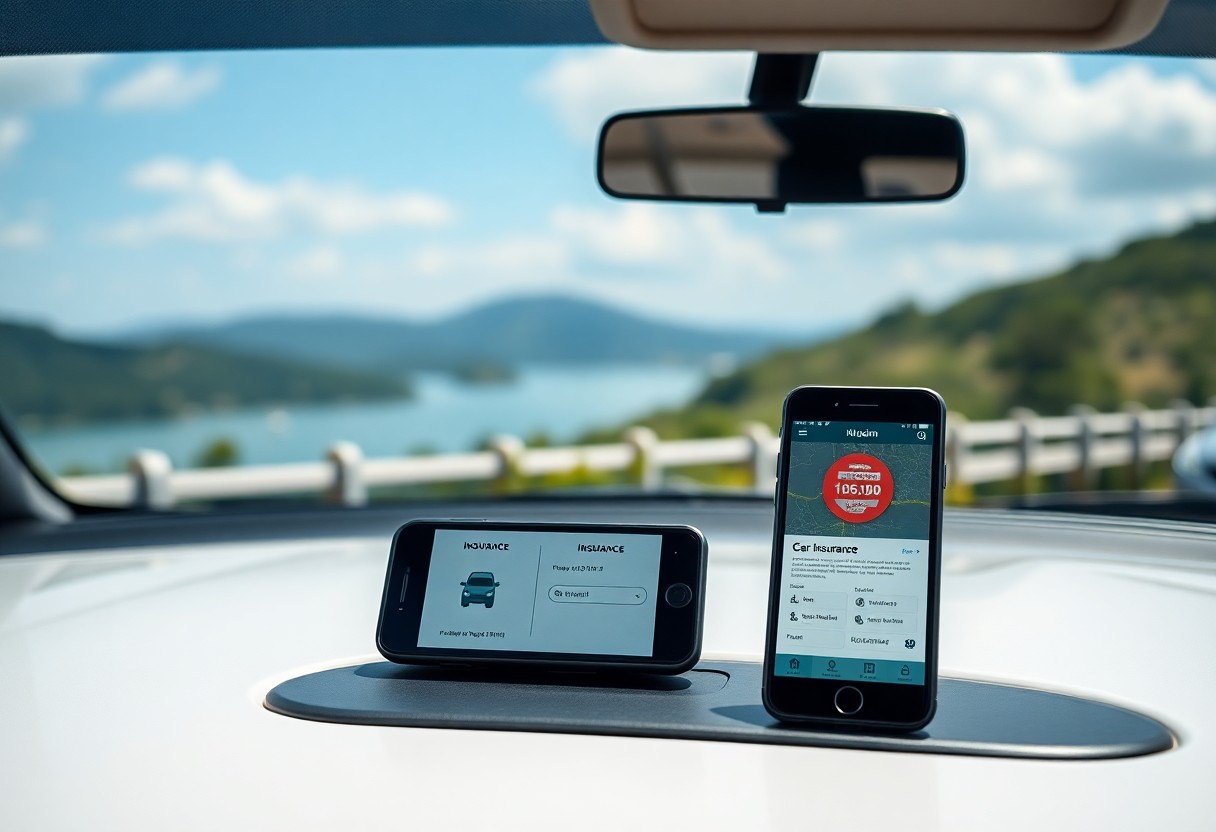You might think that rental car insurance is just another expense added to your travel budget, but it actually represents a critical layer of financial protection against unforeseen and potentially devastating financial setbacks. When you rent a vehicle, the vast array of insurance options available can often feel overwhelming. However, making a well-informed choice is essential for protecting yourself from thousands of dollars in possible repair and liability expenses. Regardless of whether your trip is for business or leisure, understanding your rental car insurance options in detail allows you to make informed decisions that could lead to significant savings and less stress in the long run. This extensive guide aims to equip you with the necessary knowledge about rental car insurance, covering everything from the basics of liability coverage to the intricate details of comprehensive insurance packages.
Mastering the Fundamentals of Rental Car Insurance
When you choose to rent a vehicle, securing car insurance is a vital safety measure against unexpected costs that might arise during your journey. It is imperative to familiarize yourself with the primary types of coverage available, which include collision damage waivers, liability protection, and personal accident insurance. Research findings indicate that approximately 1 in 6 rental car users experience some form of incident, underscoring the importance of having sufficient insurance coverage for ensuring your peace of mind and financial stability. By understanding these coverage types, you can travel confidently without the looming fear of incurring unexpected expenses.
Comprehending Legal Obligations for Rental Car Insurance
In every U.S. state, it is a legal requirement to maintain minimum liability insurance coverage alongside your driver’s license when renting a vehicle. While your personal auto insurance may extend its coverage to rental cars, it’s essential to be aware that gaps in that coverage could expose you to significant financial risks. Therefore, verifying your existing insurance policy and becoming acquainted with local regulations is crucial for making an informed decision about whether to decline additional rental insurance options that may be offered. Understanding these regulations can help you navigate the rental process more confidently.
Delving into the Basics of Financial Protection Through Insurance
Having a solid layer of financial protection through rental car insurance acts as a barrier against potentially exorbitant expenses that may arise from accidents or damages. Typically, you will need to make decisions regarding coverage options such as damage to the rental vehicle (collision damage waiver), liability for damage inflicted on other parties, and personal injury protection. Given that the average repair costs for rental vehicles often exceed $3,000, securing the proper coverage is paramount for ensuring your financial peace of mind. Additionally, it is vital to evaluate factors such as your travel destination, the trip’s duration, and your individual risk tolerance when selecting coverage. While some credit cards may provide a degree of rental car protection, these benefits often come with limitations. A thorough analysis of deductibles, coverage limits, and exclusions is necessary to ensure you have comprehensive protection tailored to your unique needs.
Recognizing the Key Types of Rental Car Insurance Coverage
As you navigate the process of renting a car, you will encounter various essential insurance coverage options designed to protect both you and the vehicle you are renting. These options span from basic liability coverage to more comprehensive insurance plans. Being well-informed about these coverage types will empower you to make educated choices regarding your rental car protection needs, thereby enhancing your overall rental experience.
| Coverage Type | Protection Offered |
|---|---|
| Collision Damage Waiver | Coverage for vehicle damage and theft |
| Liability Insurance | Protection against third-party injury and property damage |
| Personal Accident Insurance | Coverage for medical expenses incurred |
| Personal Effects Coverage | Protection for personal belongings in the vehicle |
| Supplemental Coverage | Additional protection beyond standard coverage |
Examining Collision and Loss Coverage Options
Insurance for your rental vehicle typically encompasses comprehensive protection against damages that may result from accidents, theft, or vandalism. This type of coverage generally includes a deductible, which can range from $250 to $1,000, depending on the specific plan you select. By opting for this level of insurance, you ensure that your rental vehicle is safeguarded against most forms of physical damage, providing you with peace of mind as you travel. Having this coverage allows you to focus on enjoying your trip rather than worrying about the financial implications of potential mishaps.
Assessing Your Liability Protection Options
Liability protection stands as one of the most critical components of rental car insurance, as it shields you from claims made by third parties for bodily injury or property damage. Typical liability coverage limits can vary widely, ranging from $50,000 to $1 million per incident, depending on the specifics outlined in your policy. Without sufficient personal liability protection, you could face considerable financial exposure. Most policies also encompass coverage for legal defense costs and settlement payments that fall within your coverage limits. You have the option to either select standard liability coverage or take advantage of supplemental options for an added layer of security during your travels.
Uncovering Secondary Insurance Options for Enhanced Protection
Having established a foundation with primary coverage, it’s time to explore additional layers of protection that can further enhance your rental car experience. These secondary insurance options can effectively fill critical gaps in your coverage, providing up to $300,000 in additional protection beyond your primary insurance. Such supplementary options are especially beneficial when your existing coverage may not fully suffice, ensuring you have peace of mind throughout your journey.
Utilizing Personal Protection Plans for Comprehensive Coverage
To bolster your safety net even further, Personal Protection Plans can offer extensive coverage for medical expenses and personal belongings while using a rental vehicle. Typically costing between $5 to $15 per day, these plans can cover medical expenses up to $50,000 for you and your passengers. Furthermore, these plans also protect your valuable items against theft or damage while stored inside the rental vehicle, allowing you to travel without worry.
Comprehending Property Protection Coverage for Your Belongings
Beyond personal protection, Property Protection Coverage is specifically designed to safeguard your belongings while inside the rental car. This type of coverage can reimburse you for up to $2,500 worth of personal items that may be stolen or damaged during your rental period. This coverage not only protects against theft but also extends to incidents involving vandalism, natural disasters, and damages incurred from accidents in which you are not at fault. You’ll receive coverage for valuable items such as electronics and luggage, typically with low deductibles ranging from $50 to $100 per claim, offering you an additional layer of financial security.

Exploring Specialized Coverage Options for Unique Rental Needs
Your needs for rental car insurance may extend beyond the basic coverage, particularly if you have specific travel plans or unique requirements. Whether you are embarking on an adventurous off-road journey or transporting valuable equipment, specialized coverage options can provide tailored protection to meet your individual circumstances, ensuring that you are fully prepared for any situation.
Investigating Various Types of Supplemental Insurance
| Coverage Type | Protection Offered |
|---|---|
| Equipment Coverage | Protection for specialized equipment and modifications |
| Off-Road Protection | Coverage for damages occurring during authorized off-road use |
| International Coverage | Protection that extends across international borders |
| Commercial Use Coverage | Protection for business-related vehicle use |
| Extended Duration Coverage | Protection tailored for long-term rentals |
Evaluating Roadside Assistance Options for Added Security
In addition to standard insurance coverage, roadside assistance can provide essential support in unexpected situations. This service typically includes 24/7 emergency support, towing services, and mechanical assistance for a variety of issues. Familiarizing yourself with your roadside assistance options can save you from potentially stressful scenarios and costly recovery fees, ensuring a smoother travel experience.
Roadside assistance options generally encompass battery jump-starts, fuel delivery, lockout services, and tire changes. These services are especially beneficial when traveling in unfamiliar areas or during long-distance trips. Depending on your specific needs, you can choose from basic packages starting at $5 per day or opt for more comprehensive coverage that includes unlimited service calls, providing peace of mind throughout your travels.
Evaluating Cost Considerations for Rental Car Insurance
To make a well-informed decision regarding rental car insurance, it is crucial to weigh the daily costs against potential out-of-pocket expenses that could arise from an accident. Insurance rates typically range from $10 to $30 per day for basic coverage, while more comprehensive protection can reach up to $50 daily. Viewing these costs as an investment rather than merely an expense can significantly enhance your ability to make prudent decisions about your insurance coverage needs.
Recognizing Key Factors Impacting Insurance Premiums
Several pivotal factors can influence the premium rates for rental car insurance:
- Type and value of the vehicle
- Duration of the rental
- Your driving history
- Location of the rental
- Level of coverage selected
Understanding these factors can aid you in anticipating and potentially lowering your insurance expenses, allowing for a more cost-effective rental experience.
Examining Payment Structures for Rental Car Insurance
When it comes to rental car insurance, you will encounter various payment options. Most rental companies offer daily rates for short-term rentals, while longer rental periods may qualify for weekly or monthly discounts. Your decision between making an upfront payment or selecting daily billing can significantly affect the total cost of your rental insurance.
Cost structures can vary considerably among different providers, with bundled packages often delivering better value. By combining various types of coverage, you might be able to save between 15% to 20%. Additionally, some companies have loyalty programs that could reduce your insurance costs by up to 25% for frequent renters, further enhancing your savings.

Developing Insightful and Strategic Insurance Choices
Your decisions regarding rental car insurance should be approached with a strategic mindset. According to recent industry data, 65% of renters end up paying more for coverage than they actually need. Your decision-making process should carefully balance cost-effectiveness with comprehensive protection. It’s essential to assess your existing insurance coverage through credit cards or personal auto policies before opting for additional insurance options.
Conducting a Comprehensive Coverage Evaluation
After identifying your insurance needs, evaluate each coverage option against your specific circumstances. Your personal auto insurance may already provide primary coverage up to $100,000 for rental vehicles. It is also advisable to review your credit card benefits, as many premium cards offer collision damage waiver (CDW) at no extra charge. This meticulous evaluation can help you save as much as $30 per day by avoiding unnecessary coverage that you may not require.
Formulating a Policy Selection Strategy Tailored to You
Once you’ve identified your coverage gaps, focus on selecting policies that effectively address these specific needs. Your strategy should prioritize essential areas of coverage while avoiding redundant protection. Consider various factors such as your travel destination, rental duration, and the value of the vehicle you are renting. Statistics reveal that supplemental liability insurance is particularly beneficial in urban settings, where accident rates tend to be 40% higher than average.
Decisions about rental car insurance require careful consideration of multiple variables. Your personal risk tolerance, travel location, and existing coverage all play significant roles in your overall decision-making process. Industry reports suggest that selecting the right combination of coverages can lead to savings of up to 60% on insurance costs while still providing adequate protection. Focus on policies that specifically address your vulnerabilities instead of opting for generic packages that may not meet your needs.
Final Insights on Choosing the Most Suitable Rental Car Insurance
Your choice of rental car insurance can greatly impact your overall travel experience. By gaining a thorough understanding of the various coverage options available—from collision damage waivers to roadside assistance—you empower yourself to protect both your finances and peace of mind during your travels. Before you finalize your rental vehicle pick-up, take the time to assess your current coverage, compare available options, and choose the protection that best aligns with your needs. Making informed insurance decisions today can save you from significant headaches in the future, ensuring that your rental experience is as smooth and stress-free as possible.
The Article: The Complete Guide to Rental Car Insurance: What You Need to Know appeared first on https://rentacar24.org/
The Article Rental Car Insurance: Essential Insights You Need to Know Was Found On https://limitsofstrategy.com



Navigating the world of rental car insurance always feels like a labyrinth, doesn’t it? I remember a trip where I almost bypassed the insurance, thinking my personal auto insurance would cover everything. It turned out that wasn’t the case—my policy had some major gaps for rental cars. It’s scary to think about how easily a minor accident could lead to exorbitant costs.
Navigating rental car insurance really can feel like a maze. I’ve been there myself—despite my best efforts to read the fine print of my policy, I still found some surprising gaps. It’s interesting how many people assume their personal auto insurance will cover everything when renting a car, only to find out that there are exclusions that could lead to a hefty bill after an accident.
Navigating rental car insurance really can feel like a maze, and I can totally relate to your experience with the fine print. When I rented a car for a recent road trip, I thought I was covered by my personal auto insurance as well. However, I learned the hard way that not all policies are the same, and those exclusions can catch you off guard.
Navigating rental car insurance really is like stepping into a labyrinth, isn’t it? That experience of trusting your personal auto insurance only to find out about those sneaky exclusions can be frustrating. I had a similar experience a while back when I rented a car for a family trip. I assumed everything was covered, only to hit a snag when I realized that my policy didn’t extend to certain types of vehicles.
It’s crazy how different policies can be, right? I had a similar experience where I thought I was covered, only to find out that my personal auto insurance didn’t include rentals in certain situations. It’s so important to read that fine print—every little detail can make a difference. I’ve learned to call my insurer before a trip to clarify what’s actually covered. It’s a bit of a hassle, but it saves a lot of stress down the road. Were there any specific exclusions that surprised you?
Navigating rental car insurance can easily turn into a confusing experience. It’s not just about the fine print; even folks who take the time to read it often end up with more questions than answers. Your point about the assumptions many make regarding personal auto insurance is spot on. Many people think they’re fully covered just because they have a car insurance policy, but there are quite a few nuances that can catch you off guard.
Navigating rental car insurance can really feel daunting, especially when you’re under the pressure of travel. Your experience highlights a common issue; many people think their personal auto insurance has them fully covered, but rental cars can come with a different set of rules. It’s good to be aware that some policies exclude coverage for rentals entirely, while others might have limitations that could leave you exposed to unexpected costs.
You’ve touched on a really important point. Navigating rental car insurance is often one of those tasks that feels like it just adds to the stress of travel. I remember a time when I was on a road trip and almost skipped the insurance, thinking my personal auto policy had me covered. Turns out, my coverage was pretty limited for rentals, and I ended up feeling a bit anxious about what could go wrong.
You raise an important point about navigating rental car insurance. It can definitely feel overwhelming, especially when you’re juggling travel plans. I remember my last trip; I assumed my personal auto insurance would cover everything, but when I read the fine print, I found out about those pesky limitations you mentioned. It’s surprising how many people just overlook that.
Navigating the world of rental car insurance really does feel like a labyrinth sometimes. I’ve had that same misconception about personal auto insurance—thinking it would cover everything when renting a car. It’s surprising how many people overlook those gaps until they find themselves in a tricky situation.
You raise an important point about the misconceptions many of us have when it comes to rental car insurance. It’s frustrating that rental companies often don’t make it clear what’s covered and what isn’t. Most people assume their personal auto insurance has them covered for everything, but that’s not always the case.
It really is a maze, isn’t it? I’ve heard plenty of similar stories where people thought they were covered only to discover their policy had those tricky gaps. It’s wild how a minor accident can turn into a major headache—and a major bill.